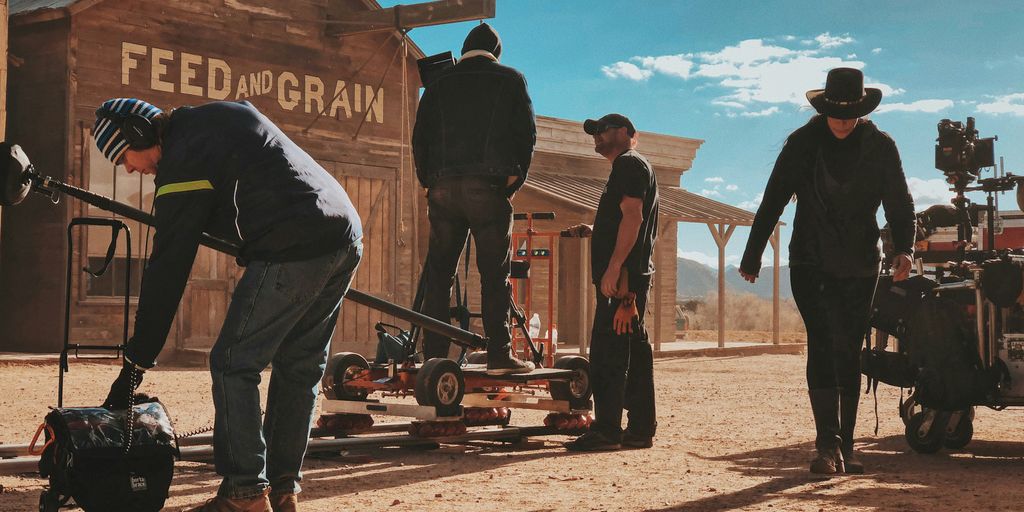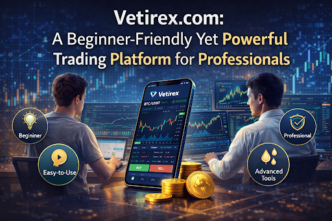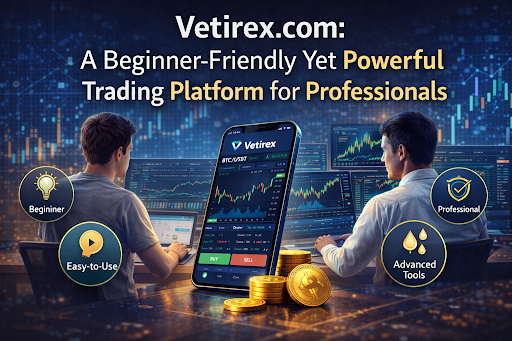So, you wanna be an entertainment entrepreneur, huh? That’s awesome! It’s a wild ride, for sure, but totally doable if you know your stuff. This article is all about helping you figure out how to make your mark in the entertainment world, turning your big ideas into real-deal success stories. We’ll cover everything from getting your head in the game to actually launching your first big project.
Key Takeaways
- You gotta really believe in your ideas and stick with them, even when things get tough.
- Building good relationships with people in the industry is super important for finding chances to grow.
- Always keep learning and getting better at what you do; it makes a big difference.
- It’s smart to understand the money side of things and how to get your projects out there.
- Finding the right people to help you, like agents, can open up a lot of doors for your career.
Cultivating an Entrepreneurial Mindset
Becoming an entrepreneur in entertainment means you have to think differently. It’s not just about being creative; it’s about seeing opportunities and making things happen, even when the path isn’t clear. You’re basically building your own road in an industry that changes all the time. It takes a certain kind of drive to do that, a willingness to push past the usual ways of doing things.
Embracing Innovation in Entertainment
The entertainment world is always moving. What was popular yesterday might be old news tomorrow. So, if you want to make a mark, you have to be open to new ideas and new ways of doing things. This means looking at technology, new platforms, and even different storytelling methods. Being innovative isn’t just a nice-to-have; it’s a must-have for staying relevant. Think about how streaming changed everything, or how social media became a huge part of how artists connect with fans. You need to be ahead of those trends, or at least right there with them. It’s about asking: "What’s next?" and then figuring out how to be a part of it, or even create it.
Developing Persistence and Resilience
Let’s be real, the entertainment industry can be tough. You’ll hear "no" a lot more often than "yes." Projects fall apart, deals don’t close, and sometimes, it feels like you’re hitting a wall. That’s where persistence comes in. You have to keep going, even when it feels impossible. Resilience means you can bounce back from those setbacks. It’s not about avoiding failure, because that’s going to happen. It’s about learning from it and getting back up. Think of it like this:
- You pitch an idea, and it gets rejected. Instead of giving up, you ask for feedback and refine your pitch.
- A project runs into budget issues. You don’t abandon it; you find creative solutions to keep it moving.
- You face criticism. You take what’s useful and let the rest go, focusing on your vision.
This kind of mental toughness is what separates those who make it from those who don’t. It’s a long game, and you need to be ready for the ups and downs.
Connecting Creative Vision with Business Acumen
Being creative is one thing, but being a successful entertainment entrepreneur means you also understand the business side. You can have the most amazing idea in the world, but if you don’t know how to fund it, market it, or make money from it, it’s just an idea. This means learning about things like:
- Budgeting and financial planning for projects.
- Understanding contracts and legal agreements.
- Developing a clear business plan for your creative ventures.
- Knowing how to pitch your ideas to investors or partners.
It’s about finding that sweet spot where your artistic passion meets practical business sense. You need to be able to talk about your creative vision with the same confidence you talk about your financial projections. This blend of skills is what makes an entrepreneurial journey in entertainment truly successful. It’s not just about making art; it’s about building a sustainable career around it.
Building Your Industry Network

Building connections in the entertainment world is super important. It’s not just about who you know, but also about who knows you and what you can do. Think of it like planting seeds; you put in the effort now, and later, those connections can really help your career grow. It’s a long game, but it’s worth it.
Attending Key Industry Events
Going to industry events is a big deal. These aren’t just parties; they’re places where you can meet people who are actually doing what you want to do. You might find yourself chatting with a producer, a director, or even someone who works at a big studio. It’s all about showing up and being ready to talk about yourself and what you’re passionate about. Don’t just stand in a corner; get out there and introduce yourself. You never know who you’ll meet or what opportunities might pop up. It’s a great way to get a feel for the industry’s pulse and see what’s new.
Engaging with Professionals
Once you’ve met people, the next step is to actually talk to them. This means more than just a quick hello. Ask them about their work, what challenges they face, and how they got to where they are. People generally like talking about themselves, so let them. Listen more than you talk, and when you do talk, make it count. Having genuine conversations can turn a casual acquaintance into a real connection. Follow up with a quick email or a LinkedIn message after you meet someone. It shows you’re serious and that you value their time. Remember, it’s about building relationships, not just collecting business cards. You want to be someone they remember in a good way.
Leveraging Mentorship Opportunities
Finding a mentor can change everything. It’s like having a guide who’s already been down the path you’re trying to take. They can give you advice, introduce you to people, and help you avoid common mistakes. It’s not always easy to find a mentor, but it’s worth the effort. Here are some ways to find one:
- Look for people whose careers you admire and who seem approachable.
- Attend workshops or seminars where experienced professionals are speaking.
- Join industry organizations or groups where mentorship programs might exist.
- Don’t be afraid to ask someone directly if they’d be willing to offer guidance. Be clear about what you’re looking for.
Mentors can offer insights into inclusive community spaces within the industry, helping you understand how to navigate different professional environments. They can also help you understand the unwritten rules of the business and give you a leg up when you’re just starting out. It’s a two-way street, though; be respectful of their time and always be prepared when you meet with them.
Mastering Your Craft and Brand
Investing in Skill Development
So, you want to make it big in entertainment? Well, talent alone isn’t going to cut it. You’ve got to keep working on your skills, always. Think of it like this: even the best athletes still train every single day. For you, that means taking classes, going to workshops, and just practicing your craft until it feels like second nature. It’s not about being perfect right away, but about getting a little bit better all the time. The more you invest in yourself, the more opportunities will open up.
Here are some ways to keep those skills sharp:
- Regular Training: Sign up for acting classes, vocal lessons, dance workshops, or whatever fits your area. Consistency is key.
- Mentorship: Find someone who’s already where you want to be and learn from them. Their experience can save you a lot of headaches.
- Self-Study: Read books, watch documentaries, analyze performances. There’s a ton of knowledge out there if you look for it.
- Practice, Practice, Practice: Whether it’s rehearsing lines, writing new material, or perfecting a musical piece, put in the hours.
Crafting a Distinctive Personal Brand
In today’s world, everyone’s got a brand, whether they know it or not. For you, an entertainment entrepreneur, your personal brand is everything. It’s how people see you, what they think of when your name comes up. It’s not just about a logo or a fancy website; it’s about your unique voice, your style, and what makes you, well, you. You need to figure out what makes you different and then show that off to the world. This is how you stand out in a crowded industry. For Boston businesses, digital marketing and SEO can help build a strong online presence.
Consider these elements when building your brand:
- Identify Your Niche: What kind of artist are you? What message do you want to send? Who is your audience?
- Develop a Consistent Image: This includes your headshots, your social media profiles, and even how you present yourself in person. Everything should feel cohesive.
- Tell Your Story: People connect with stories. Share your journey, your inspirations, and what drives you. Make it real.
Showcasing Your Unique Talent
Once you’ve put in the work and figured out your brand, you’ve got to show it off. It’s not enough to be good; people need to know you’re good. This means creating a portfolio, putting your work out there, and making sure it gets seen by the right people. Think of it as your personal showcase. You’ve got something special, so don’t keep it a secret.
Ways to get your talent noticed:
- Create a Strong Portfolio/Reel: This is your visual resume. Make sure it highlights your best work and shows off your range.
- Utilize Social Media: Platforms like Instagram, TikTok, and YouTube are powerful tools for sharing your work and connecting with fans and industry pros.
- Perform Live: If your craft allows, get on stage, perform at open mics, or participate in local productions. There’s nothing like a live audience.
- Collaborate with Others: Work with other artists, filmmakers, or musicians. This can lead to new projects and expose your talent to new audiences.
Navigating the Business Side of Entertainment
Let’s be real, the entertainment world isn’t just about creative genius. It’s a business, plain and simple. If you want to make a living, you’ve got to understand how the money works, how to get your stuff seen, and how to team up with others. It’s not always fun, but it’s necessary.
Understanding Project Financing
Getting money for your projects is a big deal. It’s not like you just snap your fingers and a movie gets made or an album gets recorded. You need to know where the cash comes from and how to get it. Knowing your funding options is super important for getting your ideas off the ground.
Here are some common ways projects get funded:
- Private Investors: These are individuals or groups who put their own money into your project, hoping to get a return. You’ll need a solid pitch and a clear business plan.
- Grants and Fellowships: Some organizations offer money specifically for creative projects. These often come with specific requirements and can be very competitive.
- Crowdfunding: Platforms like Kickstarter or Indiegogo let you raise small amounts of money from a large number of people. This works best if you have a strong community or a really compelling story.
- Studio/Label Funding: For bigger projects, major studios or record labels might provide the financing. This usually means giving up a lot of control, but it can also mean a much larger budget.
Developing Effective Marketing Strategies
Once you’ve got your project, how do people find out about it? That’s where marketing comes in. You can’t just make something great and expect everyone to magically discover it. You need a plan to get the word out.
Think about these marketing basics:
- Identify Your Audience: Who are you trying to reach? Knowing this helps you figure out where to market and what message to use.
- Create a Buzz: This could be through social media, press releases, or even early screenings/listenings. You want people talking about your project before it’s even fully out there.
- Use Digital Platforms: Social media, streaming services, and online communities are powerful tools. Make sure your presence is strong and consistent.
- Traditional Media: Don’t forget about TV, radio, and print, especially for larger releases. These can still reach a huge audience.
Collaborating Across Disciplines
Nobody does it all alone in entertainment. Seriously, nobody. You’re going to need to work with all sorts of people, from writers and directors to sound engineers and marketing pros. Being able to work well with others is a skill you absolutely need.
Consider the different roles you might work with:
| Role | Typical Contribution |
|---|---|
| Writers | Develop scripts, lyrics, or narratives |
| Directors | Guide the creative vision of a film or show |
| Producers | Manage logistics, budget, and overall production |
| Sound Engineers | Handle audio recording, mixing, and mastering |
| Marketing Teams | Promote the project to the public |
| Legal Counsel | Handle contracts, copyrights, and other legalities |
Working with an artist manager can also be a game-changer, as they often handle many of these collaborative aspects, allowing you to focus on your creative work. It’s all about building a team that can bring your vision to life.
Securing Your First Project
Pitching and Development Strategies
Getting your first project off the ground in entertainment means you gotta have a solid plan for pitching. It’s not just about having a cool idea; it’s about how you present it. Think about who you’re talking to. Are they looking for something big budget or something more indie? Tailor your pitch to them. You need to show them you’ve thought through the whole thing, not just the fun creative bits. A well-thought-out pitch deck can make all the difference, showing you’re serious and organized.
- Know your audience: Research the people you’re pitching to. What kind of projects do they usually back?
- Keep it short and sweet: Get to the point. Executives are busy people. They don’t have all day for a rambling story.
- Show, don’t just tell: If you have visuals, a sizzle reel, or even a strong concept art, use it. It helps them see your vision.
- Practice, practice, practice: Rehearse your pitch until it feels natural, not memorized. You want to sound confident and passionate.
Understanding Production Logistics
Once someone says "yes" to your idea, that’s when the real work starts. Production logistics are all the nitty-gritty details that make a project happen. This means budgeting, scheduling, hiring crew, finding locations, and dealing with all the permits. It’s a lot, and it can feel overwhelming, but breaking it down into smaller steps helps. You don’t need to be an expert in everything, but you do need to know enough to ask the right questions and make smart decisions. For example, if you’re making a film, you’ll need to consider things like equipment rental, insurance, and catering. It’s a whole different ballgame than just writing a script.
Here’s a quick look at some key areas:
| Area | Key Considerations |
|---|---|
| Budgeting | How much money do you have? Where will it go? |
| Scheduling | When will things happen? How long will they take? |
| Crewing | Who do you need? How will you find them? |
| Locations | Where will you shoot/perform? Are permits needed? |
Leveraging Industry Connections for Project Launch
Remember all that networking you did? Now’s the time to use it. Your industry connections aren’t just for getting advice; they can be a huge help when you’re trying to launch your first project. Maybe someone you met knows a great editor, or they can introduce you to a distributor. Don’t be afraid to reach out and ask for help or advice. People in the industry often want to see new talent succeed, especially if you’ve built a good relationship with them. Think of it as a community where everyone helps each other out. Finding entertainment industry jobs can also come from these connections.
- Reach out to mentors: They’ve been there, done that. Their advice is gold.
- Ask for introductions: If someone knows a person who can help, ask them to make an introduction.
- Collaborate with peers: Your fellow creatives might have skills or connections that complement yours.
- Attend industry events: Even after you’ve secured a project, keep going to events. You never know who you’ll meet or what opportunities might pop up.
Strategic Career Advancement

Partnering with Reputable Talent Agencies
Getting ahead in the entertainment world often means having the right people in your corner. Working with a good talent agency can really change your career path. These agencies do more than just find you auditions or gigs; they act as your business partners. They know the ins and outs of contracts, can negotiate better deals for you, and often have connections you wouldn’t get on your own. Think of them as your personal career strategists. They can help you figure out what roles or projects fit your long-term goals and steer you away from things that might not be a good fit. It’s like having a team dedicated to making sure you’re always moving forward. When you’re looking for an agency, do your homework. Check their track record, talk to other clients if you can, and make sure they understand your vision. A strong partnership with an agency means they believe in you and are ready to put in the work to help you succeed.
Identifying Insider Opportunities
Finding those hidden chances in the entertainment industry is a bit like finding treasure. They aren’t always advertised widely. These are the roles or projects that come up through word-of-mouth, through connections, or because someone knows someone. To find these, you need to be plugged in. This means:
- Going to industry events, even the smaller ones.
- Keeping up with industry news and trends.
- Having conversations with people who are already working in the field.
- Being open to different kinds of projects, even if they seem small at first.
Sometimes, an "insider opportunity" might just be a chance to meet someone important at a casual gathering. You never know where the next big break will come from, so staying connected and aware is key. It’s about being in the right place at the right time, but also making sure you’re ready when that time comes.
Sustaining Momentum in a Dynamic Industry
Keeping your career moving forward in entertainment is a marathon, not a sprint. The industry changes all the time, so you can’t just do one thing and expect it to last forever. You have to keep learning and adapting. This means:
- Always working on your skills, whether it’s acting, writing, directing, or producing. IT certifications can also be a good way to broaden your skillset.
- Being open to new technologies and platforms. What’s popular today might not be tomorrow.
- Building a diverse portfolio of work. Don’t put all your eggs in one basket.
- Staying healthy, both physically and mentally. This job can be tough, and burnout is real.
- Regularly checking in with your goals and adjusting them as needed.
It’s about being flexible and resilient. There will be ups and downs, but if you keep pushing, keep learning, and keep building your network, you can stay relevant and successful for a long time. It’s a constant process of growth and adjustment.
Conclusion
So, there you have it. Becoming an entertainment entrepreneur isn’t some magic trick; it’s about putting in the work, being smart, and not giving up. You’ll hit bumps, for sure. Everyone does. But if you keep learning, keep making connections, and stay true to what you want to do, you can totally make your mark. It’s a wild ride, but it’s worth it.
Frequently Asked Questions
How important is networking in the entertainment industry?
Building connections is super important! Go to industry events, workshops, and gatherings. Talk to other artists, casting directors, and producers. Making friends in the business can open many doors.
What should I do when I face rejection or setbacks?
It’s really tough, but don’t give up! You’ll face many rejections. Keep a good attitude and keep working towards your goals. Learn from your mistakes and never stop trying.
How can I create a strong personal brand?
Having a strong personal brand helps you stand out. Get good headshots, make a nice portfolio, and show off your unique style and talent online. This helps people notice you.
Why should I work with a talent agency?
A good talent agency can really help your career grow. They give you advice, help you find special opportunities, and support you every step of the way.
How can I keep improving my skills?
It’s key to keep getting better at what you do. Take classes, go to workshops, and practice your skills. This makes you more confident and shows you’re serious about succeeding.
What does it mean to have an entrepreneurial mindset in entertainment?
It means thinking differently and being very determined. An entrepreneur finds new ways to connect things and uses all their resources to make ideas happen, even when there’s no clear path.














